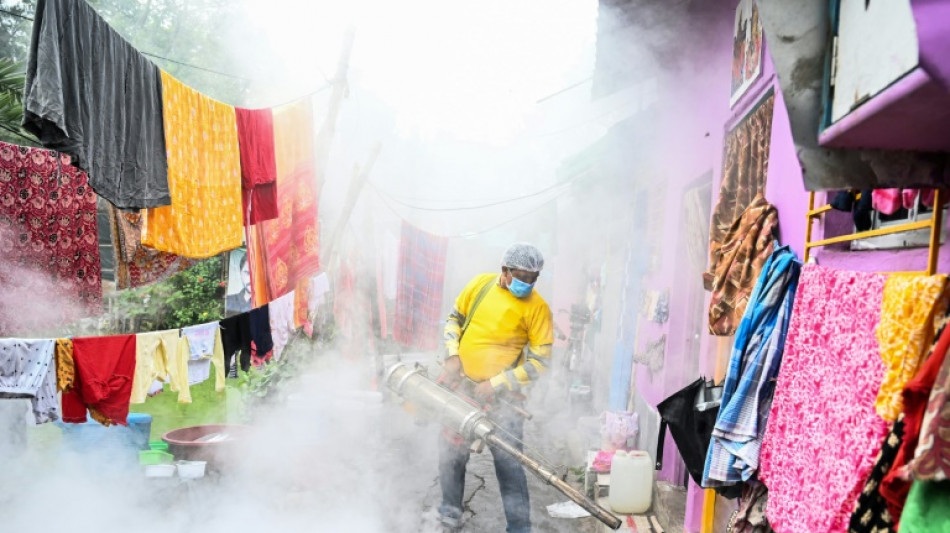
-
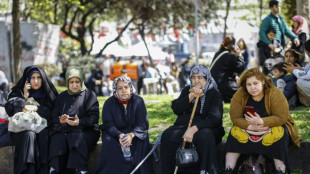 Powerful 6.2-magnitude quake hits off Istanbul coast
Powerful 6.2-magnitude quake hits off Istanbul coast
-
East Timor faithful, ex-rebels see hope after Pope Francis

-
 I.Coast's barred opposition leader says is party's only presidential candidate
I.Coast's barred opposition leader says is party's only presidential candidate
-
India vows 'loud and clear' response to Kashmir attack
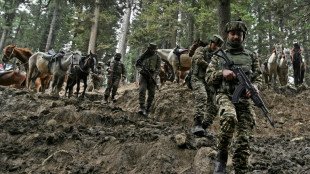
-
 Champions League spot would be 'Premier League trophy' for Man City: Nunes
Champions League spot would be 'Premier League trophy' for Man City: Nunes
-
Abbas urges Hamas to free Gaza hostages as Israeli strikes kill 18
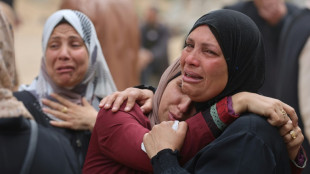
-
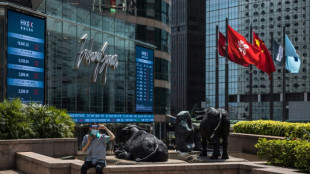 Stocks rally as Trump soothes fears over China trade, Fed
Stocks rally as Trump soothes fears over China trade, Fed
-
French PM's daughter says priest beat her as a teenager

-
 Tens of thousands say goodbye to Pope Francis lying in state
Tens of thousands say goodbye to Pope Francis lying in state
-
EU slaps fines on Apple and Meta, risking Trump fury

-
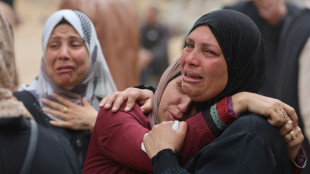 Gaza rescuers recover charred bodies as Israeli strikes kill 17
Gaza rescuers recover charred bodies as Israeli strikes kill 17
-
Tourists flee India-administered Kashmir after deadly attack
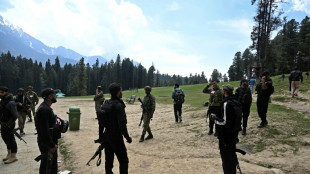
-
 China says 'door open' to trade talks after Trump signals tariffs will fall
China says 'door open' to trade talks after Trump signals tariffs will fall
-
WEF confirms investigation into claims against founder Schwab

-
 Pilgrims flock to pay tribute to pope lying in state
Pilgrims flock to pay tribute to pope lying in state
-
Stocks rally as Trump comments ease Fed, China trade fears
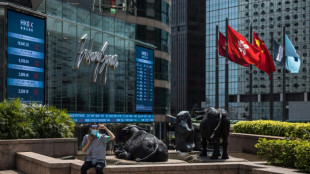
-
 Muzarabani takes six as Bangladesh set Zimbabwe 174 to win
Muzarabani takes six as Bangladesh set Zimbabwe 174 to win
-
PM faces first test as Singapore election campaign kicks off

-
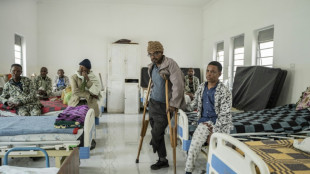 Patients with leprosy face lasting stigma in Ethiopia
Patients with leprosy face lasting stigma in Ethiopia
-
Still reeling a year on, Brazil's Porto Alegre fears next flood
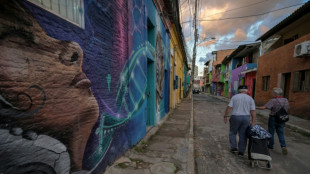
-
 Lakers level NBA playoff series, Pacers and Thunder win again
Lakers level NBA playoff series, Pacers and Thunder win again
-
At night, crime and fear stalk DR Congo's M23-run areas

-
 Embalming and make-up: Pope's body prepared for lying-in-state
Embalming and make-up: Pope's body prepared for lying-in-state
-
Prosecutors to make case against Harvey Weinstein at retrial

-
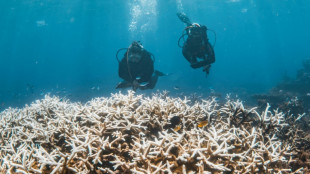 Coral reefs pushed to brink as bleaching crisis worsens
Coral reefs pushed to brink as bleaching crisis worsens
-
Vietnam village starts over with climate defences after landslide
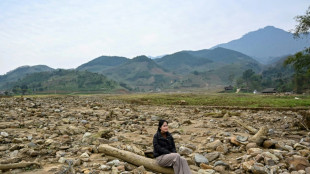
-
 'Happiness, love' at Moonie mass wedding after Japanese court blow
'Happiness, love' at Moonie mass wedding after Japanese court blow
-
Veteran Chinese astronaut to lead fresh crew to space station

-
 Pilgrims gather as Pope Francis begins lying in state
Pilgrims gather as Pope Francis begins lying in state
-
Asian markets rally as Trump comments ease Fed, China trade fears

-
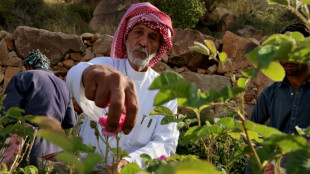 Saudi 'city of roses' offers fragrant reminder of desert's beauty
Saudi 'city of roses' offers fragrant reminder of desert's beauty
-
Trump says won't fire Fed chief, signals China tariffs will come down

-
 India hunts gunmen who massacred 26 in Kashmir tourist hotspot
India hunts gunmen who massacred 26 in Kashmir tourist hotspot
-
'No one else will': Sudan's journalists risk all to report the war

-
 UK hosts new round of Ukraine talks
UK hosts new round of Ukraine talks
-
Trial testimony reveals OpenAI interest in Chrome: reports

-
 Tokyo's newest art star: one-year-old Thumbelina
Tokyo's newest art star: one-year-old Thumbelina
-
Ronaldo hunts Asian Champions League glory in Saudi-hosted finals

-
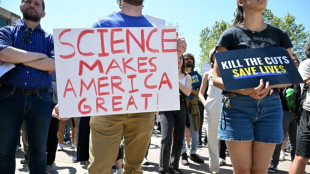 Scientists sound alarm as Trump reshapes US research landscape
Scientists sound alarm as Trump reshapes US research landscape
-
Trump's return boosts Israel's pro-settlement right: experts

-
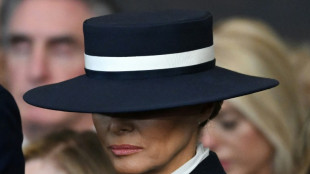 Trump solo: first lady, children out of frame in new term
Trump solo: first lady, children out of frame in new term
-
Climate watchers fret over Trump's cut to sciences

-
 Moving fast and breaking everything: Musk's rampage through US govt
Moving fast and breaking everything: Musk's rampage through US govt
-
'Everyday attack' - Trans youth coming of age in Trump's America
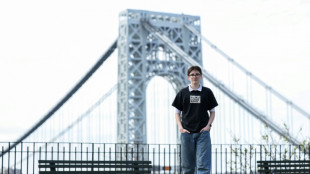
-
 A stadium and a jersey for Argentina's 'Captain' Francis
A stadium and a jersey for Argentina's 'Captain' Francis
-
New Trump task force vows to root out 'anti-Christian bias'

-
 96.com Congratulates Burnley FC on Premier League Promotion
96.com Congratulates Burnley FC on Premier League Promotion
-
Auto Shanghai showcases new EV era despite tariff speedbumps

-
 Trump's administration moves to scrap artificial food dyes
Trump's administration moves to scrap artificial food dyes
-
Musk to reduce White House role as Tesla profits plunge


Dengue treatment advances in animal trials
A new dengue treatment that could become the first to prevent and treat the virus has proven effective in initial trials in monkeys, according to new research.
Dengue is transmitted by mosquitoes and affects tens of millions each year, producing brutal symptoms that have earned it the moniker "breakbone fever".
It is endemic in dozens of countries, but no treatment exists, and two vaccines that have been developed are not yet universally approved.
Two years ago, researchers published work showing a compound could effectively prevent the virus from replicating in cell cultures and mice by preventing the interaction between two proteins.
Now the team has refined the compound and tested it in both mice and monkeys, with "very encouraging" results, said Marnix Van Loock, lead for emerging pathogens at the Janssen Companies of Johnson & Johnson, a drug company.
In rhesus macaques, a high dose of the compound known as JNJ-1802 "completely blocked viral replication", he told AFP, while in control animals viral RNA was detected between day three and seven after infection.
In monkeys, the compound was tested against the two most prevalent of the four strains of dengue, and only for its preventative properties, rather than for treatment.
But it was tested for both treatment and prevention in mice, against all four types of dengue, with successful outcomes, Van Loock said.
Dengue can cause intense flu-like symptoms, and sometimes develops into a severe form which can be fatal.
Because there are four different strains, getting infected by one does not protect against another, and catching dengue a second time is often more serious.
Researchers have warned that a warmer, wetter climate which is more hospitable to mosquitoes is likely to increase the prevalence of viruses passed on by the insect.
With no treatment available, efforts currently focus on reducing transmission -- including by infecting mosquitoes with a bacteria.
A vaccine called Dengvaxia is approved for use only in some countries and is effective against a single strain.
A second vaccine, Qdenga, was approved last December for use by the European Union, and it has also been greenlighted by Britain and Indonesia.
There are still questions to answer about the treatment however, including whether it could increase vulnerability to reinfection.
When people contract dengue, the presence of the virus in their blood generally stimulates a potent immune response that protects them from future infection.
But in some people, the immune response is weaker and that leaves them vulnerable to reinfection, which can produce more serious symptoms.
It is not yet clear whether preventing or reducing viral replication could produce that same vulnerability to reinfection.
The researchers will need to submit safety data from their current phase of testing before moving ahead with further trials involving humans, including field studies in areas affected by dengue.
Van Loock was reluctant to speculate on when a treatment might realistically be deployable.
"We are guided by the science and the data that we generate to really answer that question," he said.
N.Fournier--BTB


